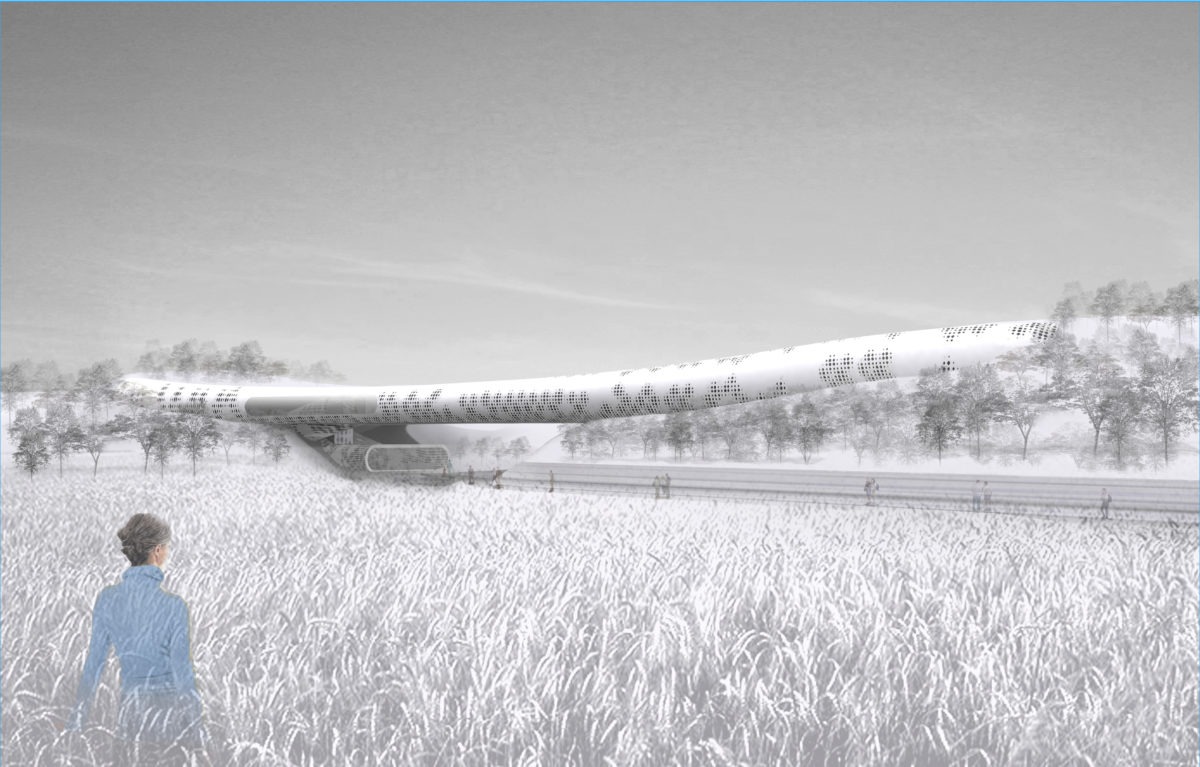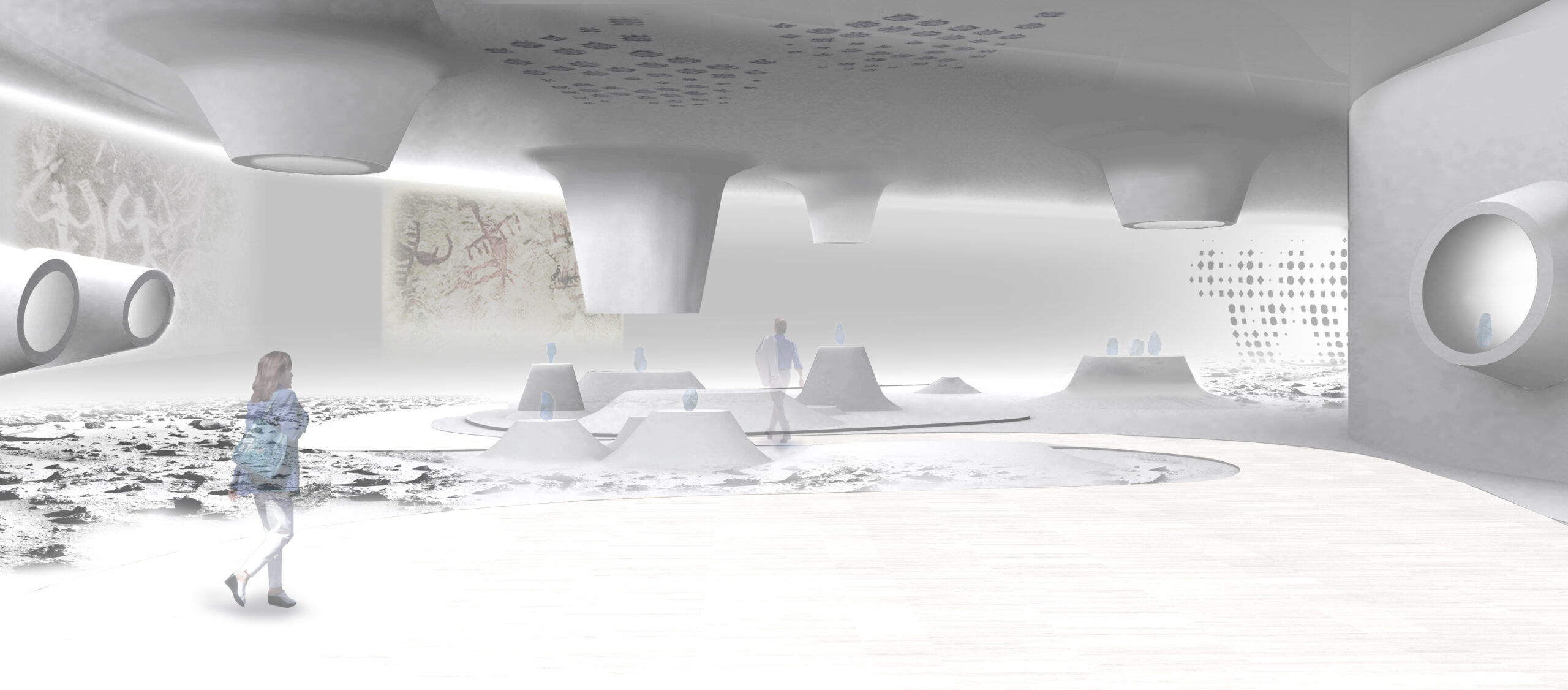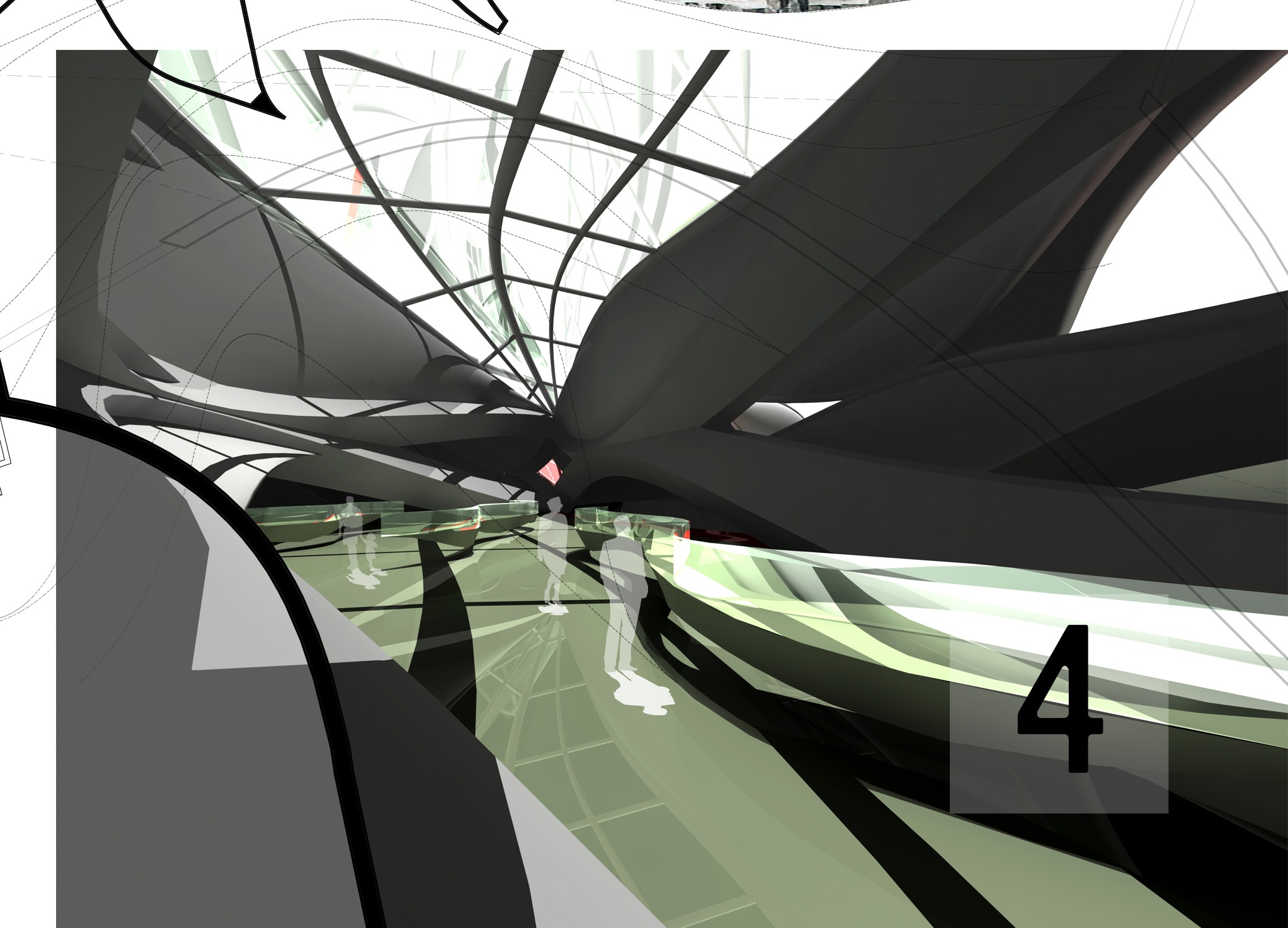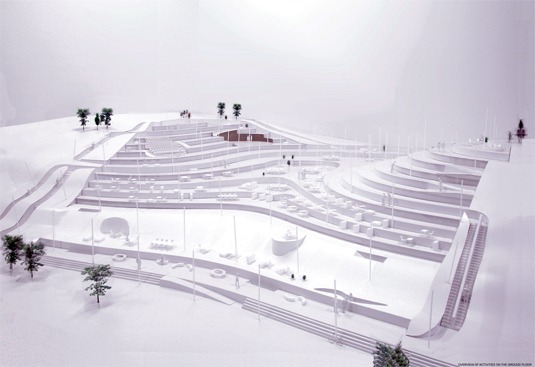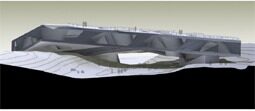This was a one-stage competition launched by the Gyeonggi Provincial Government for the design of the Gyeonggi-do Jeongok Prehistory Museum.
This competition was approved by the UIA in accordance with the UNESCO regulations governing international competitions in architecture and town planning.
Keywords :
Culture
Theme and objectives
The Jeongok-ri Palaeolithic site in Gyeonggi-do, South Korea, is a very important site which is indispensable as a subject of discussion in archeological maps, texts and academic works on human evolution. Today, the site is crucial in explaining the geographical distribution and development of Palaeolithic culture.
The objective of this competition was to establish a state-of-the-art museum providing facilities and access to a broad range of prehistoric sites and archaeological information. The Organising Committee for the Gyeonggi-do Jeongok Prehistory Museum required the construction of a museum reflecting the international importance of the site. The museum would be a place where nature and artefacts could be displayed together in harmony, but also a way to utilise and preserve cultural heritage.
Here were some of the main goals for the museum design:
- A contemporary museum on the prehistoric site which highlights the passage of time, providing a vivid experience.
- A museum which is a symbolic space of Palaeolithic culture.
- A museum in harmony with the exquisite scenery of the Hantan River.
Eligibility
This competition was open to all licensed architects, groups of architects, or teams of multidisciplinary professionals with a licensed architect as team leader, irrespective of nationality or country of residence.
